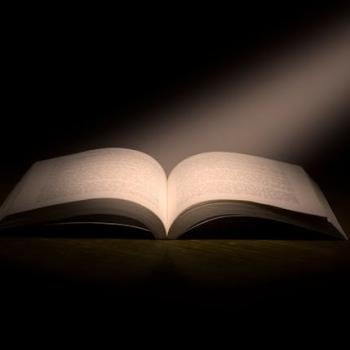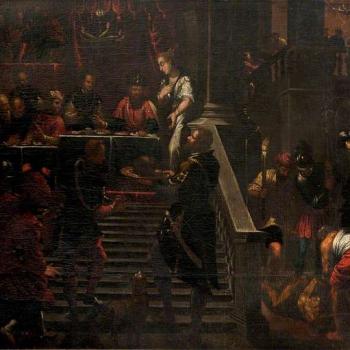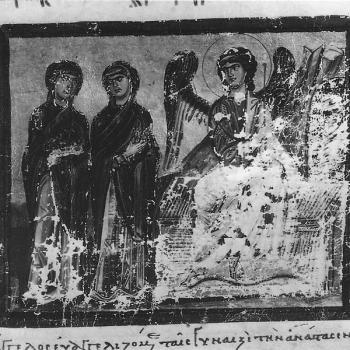October 2nd is Random Acts of Poetry Day! The goal of this day is to share random poetic outbursts, thoughts, and ideas with the world. A celebration of the arts, the day celebrates poets, artists, and those who have something to say through poetic voice. Whether poetry is your thing or not, there’s no question it has a profound impact on many worldwide. Throughout history, poetry has served as a profound medium to express thoughts of love, angst, frustration, and yes, even faith. Christian poets have inspired generations throughout history with profound, powerful words.

Though it’s not as frequently embraced today, the art of Christian poetry shares a long history with writers who desired to echo spiritual thoughts through lyrical form. The words of various Christian poets throughout the ages share ideas, spiritual thoughts, longings, and insights into the faith that bless us to this very day. Here we will learn about seven Christian poets who are definitely worth your read, especially if you want to grow in your faith.
Ephrem the Syrian (c. 306-373)
Poetry played an important role in the history of early Christianity. The ancients believed poets wrote by divine inspiration. Those words were then set to music, becoming the early hymns of the church. This method helped early believers learn essential truths of the faith. In turn, singing those songs affirmed belief throughout one’s life. One such poet – who also worked as a hymnographer – was Ephrem the Syrian, founder of the School of Nisibis (the world’s first university). Part of the school’s instruction was hymnography, including the study of teaching hymns, including feminine imagery of the divine and all-female choirs. His poem, On Reproof, is an example of his work:
Let us be builders of our own minds
into temples suitable for God.
If the Lord dwells in your house,
honor will come to your door.
How much your ‘honor’ will increase
if God dwells within you.
Be a sanctuary for Him, even a priest,
and serve Him within your temple.
Just as for your sake He became
High priest, sacrifice, and libation;
you, for His sake, become
temple, priest, and sacrificial offering.
Ephrem’s lyrical, teaching hymns are a treasure-trove of Biblical and traditional imagery as well as philosophical and religious ideas. His works include poems against heresy, commentaries on Bible books, and the only Gospel harmony of the early Syriac Church. His Christian poetry writings are found in classic Armenian, Koine Greek, and Old Georgian.
Hadewijch (13th century)
A poet and mystic we know almost nothing about, speculation has it that Hadewijch was a Dutch Beguine. We have collections of her writings, all spiritual in nature. These include Poems in Stanzas, Poems in Couplets, Book of Visions, Lists of Perfect Ones, and several letters. Expressions of awe, angst, blessing, and love transcend in prose and verse. An example is her poem, All Things:
All things
are too small
to hold me,
I am so vast
In the Infinite
I reach
for the Uncreated
I have
touched it,
it undoes me
wider than wide
Everything else
is too narrow
You know this well,
you who are also there
Marguerite Porete (13th century-June 1, 1310)
Would it surprise you to learn a woman stood trial during the Inquisition for publishing a book in French rather than Latin? This woman was Marguerite Porete, a Beguine, a mystic, and author of the profound work, The Mirror of Simple Souls. Its contents address the theme of agape love, exploring the powerful nature of God’s love for us. Highly spiritual in its tone, its contents were misconstrued by church authorities and censored. Regardless, the words have impacted believers throughout generations.
Lady Love, I ask yet one more question: why does this book say that this Soul has everything and yet has nothing? Love. That is true, says Love, for through divine grace this Soul has God, and he who has God has everything, and it says too that she has nothing, because everything which this Soul has within her from God through the gift of divine grace seems nothing to her, and it is nothing, too, in comparison with what she loves, which is in God and which he will not give to anyone except only to himself. And it is in this sense that this Soul has everything and yet has anything, she knows everything and yet she knows nothing.
We don’t know much about Marguerite’s life, save what’s recorded in her inquisition trial. From what we do know, she gave a copy of her book to a bishop, who ordered it to be burned. She was also told to stop circulating her ideas through Europe. When she refused, she was handed over to the Inquisitor of France. The book was deemed heretical. She continued to refuse to cooperate with authorities, and was burned at the stake in 1310.
John Milton (1608-1674)
An early fighter for both freedom of speech and freedom of the press, John Milton’s best-known work is Paradise Lost, an epic poem divided into twelve books. We might call it an early example of fan fiction, as it depicts the fall of Adam and Eve and their expulsion from the Garden of Eden. Though not his only work, Paradise Lost, an example of epic Christian poetry, is considered a literary epic.
Written in blank verse, Paradise Lost reflects both spiritual and political turmoil, reflecting the times in which John Milton lived.
Christina Rossetti (1830-1894)
Christina Rossetti was an English poet, writing with religious, romantic, and childhood themes. She grew up influenced by art and poetry. After a bout of tuberculosis, Christina grew depressed. She would wrestle with depression throughout her life. Taking an interest in the Anglo-Catholic revival, it would inspire her spiritual writings throughout her life. Found throughout many of her writings, Christina’s explorations of faith take center stage amidst a sense of personal angst and spiritual awareness. One of her works, Good Friday, expresses such with passion and prose.
Am I a stone, and not a sheep,
That I can stand, O Christ, beneath Thy cross,
To number drop by drop Thy blood’s slow loss,
And yet not weep?
Not so those women loved
Who with exceeding grief lamented Thee;
Not so fallen Peter, weeping bitterly;
Not so the thief was moved; not so the Sun and Moon
Which hid their faces in a starless sky,
A horror of great darkness at broad noon –
I, only I.
Yet give not o’er,
But seek Thy sheep, true Shepherd of the flock;
Greater than Moses, turn and look once more
And smite a rock.
Christina Rossetti is perhaps best known as the author of two religious poems later turned into hymns: In the Bleak Midwinter and Love Came Down at Christmas. While not as renown as other poets, she is now remembered by the Church of England with a feast day on April 27.
J.R.R. Tolkien (1892-1973)
Most know John Ronald Reuel Tolkien from his books The Hobbit and Lord of the Rings. The fantasy-esque writings merged with themes of faith (Tolkien was a devout Catholic, even to the point of rejecting the liturgical changes of the Second Vatican Council) have inspired generations of readers. However, these aren’t his only works. J.R.R. Tolkien also delved into Christian poetry. One of the best known is Noel, written to celebrate the birth of Christ. Another lesser-known prose is The Death of St. Brendan, written in honor of the Irish apostle who voyaged to the Americas in the 600s.
We deemed then, maybe, as in a dream,
that time had passed away
and our journey ended; for no return
we hoped, but there to stay.
In the silence of that hollow isle,
in the stillness, then we sang-
softly us seemed, but the sound aloft
like a pealing organ rang.
Then trembled the tree from crown to stem;
from the limbs the leaves in air
as white birds fled in wheeling flight,
and left the branches bare.
From the the sky came dropping down on high
a music not of bird,
not voice of man, nor angel’s voice;
but maybe there is a third
fair kindred in the world yet lingers
beyond the foundered land.
Yet steep are the seas and the waters deep
beyond the White-tree Strand.’
Eschewing fame, J.R.R. Tolkien was influential in the conversion of C.S. Lewis to Christianity and a translator and commentator for The Jerusalem Bible.
T.S. Eliot (1888-1965)
Thomas Sterns Eliot is probably best known as a playwright, writing most of his plays in verse. He held great interest in spirituality, converting from Unitarian to Anglicanism in 1927. Even this didn’t stop his spiritual ambitions, as he continued to explore ideas. His poetry took on a particularly religious edge after his conversion. This is seen in his poem, Ash Wednesday:














